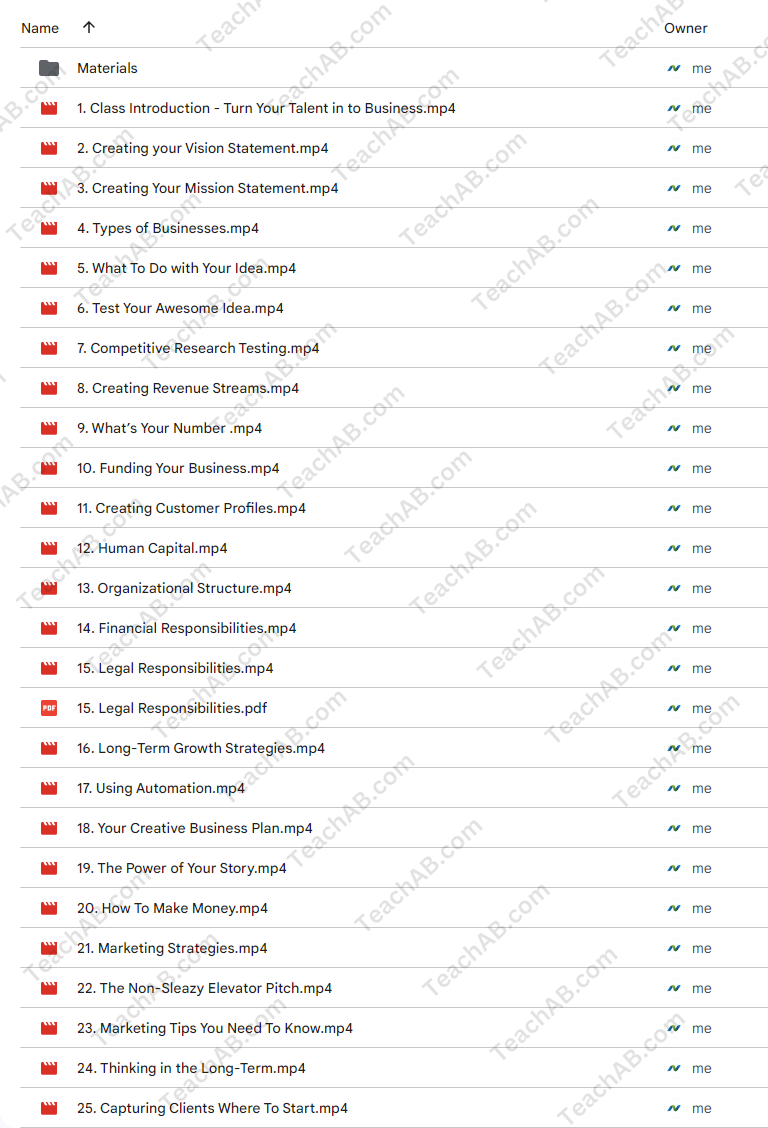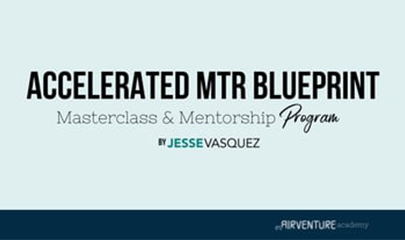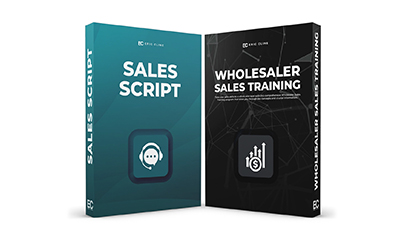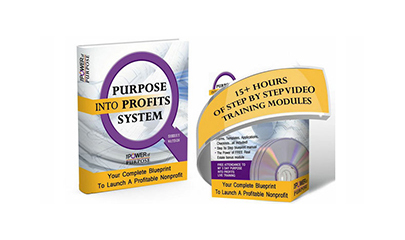FAST CLASS: Turn Your Talent Into a Business in 12 Steps By Beate Chelette
$5,00
Turning Your Talent into a Business in 12 Steps: A Journey with Beate Chelette – Digital Download!
Let’s embark on a captivating adventure to uncover remarkable insights that spark your curiosity and elevate your understanding

FAST CLASS: Turn Your Talent Into a Business in 12 Steps By Beate Chelette
Overview

Turning Your Talent into a Business in 12 Steps: A Journey with Beate Chelette
In the ever-evolving landscape of entrepreneurship, having a clear direction is crucial for success. Beate Chelette’s course, “Turn Your Talent into a Business in 12 Steps,” serves as a guiding light for aspiring entrepreneurs. It is designed not just to inspire, but to equip individuals with practical tools and strategies to transform their innate talents into thriving business ventures. This intensive immersion offers a comprehensive framework that addresses everything from the foundational vision of a business to the intricate details of financial management and marketing strategies. The promise of this course is not only in theoretical knowledge but also in actionable insights that can be implemented immediately.
The Vision and Mission Statement: The Bedrock of Your Business
Understanding the essence of a business begins with a clear vision and mission statement. Chelette emphasizes this as a fundamental step which lays the groundwork for any entrepreneurial journey. Just like a ship requires a compass to navigate through uncharted waters, a business needs a well-defined purpose to steer its direction.
In this course, participants learn to articulate their vision what they aspire to achieve and their mission the road map they will follow. This includes introspection and self-discovery, akin to finding one’s way in a dense forest. By understanding individual values and passions, entrepreneurs can forge a path that resonates not only with their goals but also with their potential customers.
Key Components of a Vision and Mission Statement
- Clarity: Clearly defined goals and aspirations.
- Inspirational Elements: Motivating both the entrepreneur and their team.
- Target Audience: An understanding of who the business serves.
- Longevity: The capability to adapt and grow over time.
By focusing on these elements, participants can craft statements that reflect their business’s identity and set the tone for decision-making processes.
Identifying Business Types: Finding Your Niche
As the course progresses, Beate Chelette elucidates the various types of businesses that exist within the marketplace. Recognizing one’s niche is as essential as knowing which instrument to play in an orchestra; each business type has its unique rhythm and requirements.
Categories of Business Types
- Product-Based Businesses: Focused on selling physical goods.
- Service-Based Businesses: Providing services rather than products.
- E-commerce: Online business transactions.
- Consultancy: Offering expert advice in a particular field.
Understanding these categories allows participants to make informed decisions about the types of businesses that align with their skills and market demands.
Transforming Ideas into Viable Business Plans
One of the pivotal steps taught in the course is how to effectively transform innovative ideas into actionable business plans. This is akin to sculpting a masterpiece from a raw block of marble; with precision and care, entrepreneurs can carve out a clear plan that details how their ideas can materialize into a functional business.
Key Elements of a Business Plan
- Executive Summary: An overview of the business concept.
- Market Analysis: Research of the target market and competitors.
- Operational Plan: Logistics of how the business will run.
- Financial Projections: Anticipated revenues and expenditures.
Creating a comprehensive business plan not only prepares entrepreneurs for the challenges ahead but also instills confidence when seeking funding or partnerships.
The Importance of Competitive Research
In an age of fierce competition, understanding the landscape of one’s industry is paramount. Beate Chelette emphasizes the need for competitive research as a strategy to not only survive but thrive in the market. This process is like preparing for a chess match; anticipating an opponent’s moves can give a significant advantage.
Steps for Conducting Competitive Research
- Identify Competitors: Who are the direct and indirect competitors?
- Analyze Their Strategies: What are they doing that works?
- Understand Their Customer Base: Who are their customers and why do they choose them?
- Evaluate Market Trends: What are the prevailing trends impacting the industry?
By employing these strategies, participants gain a clearer understanding of their positioning in the market, enabling them to innovate and offer unique value propositions.
Financial Management: The Lifeblood of Business
Financial management is often cited as one of the most challenging aspects of running a business. However, Chelette equips entrepreneurs with tools to handle finances effectively. This section of the course is crucial as it is analogous to managing a garden; with proper care and planning, a flourishing business can arise from what initially seems like mere seeds of potential.
Fundamental Principles of Financial Management
- Budgeting: Essential for tracking income and expenditures.
- Cash Flow Management: Understanding the timing of cash inflows and outflows.
- Profit Margins: Analyzing costs versus sales to determine profitability.
- Investment Strategies: Knowing when and how to reinvest in the business.
Participants leave this course with not only the theoretical understanding of finances but practical techniques that can lead to sustainable growth.
Customer Profiling: Understanding Your Audience
Creating a successful business also means understanding the customers it serves. Beate Chelette emphasizes the significance of customer profiling, likening it to a map that outlines the pathways to engaging effectively with potential buyers. Knowing who your customers are enables entrepreneurs to tailor their offerings, ensuring maximum relevance and appeal.
Steps to Effective Customer Profiling
- Demographic Information: Age, gender, income level, and education.
- Psychographic Data: Interests, values, and lifestyle choices.
- Customer Needs and Pain Points: Understanding challenges faced by potential customers.
- Buying Behaviors: Patterns related to how consumers make purchasing decisions.
This detailed profiling not only helps in marketing strategies but also in building long-term relationships based on mutual understanding.
Legal Responsibilities: Navigating the Requirements
Starting a business comes with a slew of legal responsibilities that must be adhered to. Beate Chelette helps demystify these complexities, providing participants with the knowledge needed to legally navigate the waters of entrepreneurship. This aspect of the course is critical, as ignoring legal obligations can lead to dire consequences, much like sailing into a storm without a sturdy ship.
Key Legal Considerations for New Businesses
- Business Structure: Choosing the right legal entity (LLC, Corporation, etc.)
- Licensing Requirements: Understanding what permits are necessary to operate legally.
- Contracts: The importance of having written agreements with clients and partners.
- Intellectual Property: Protecting unique ideas and products from infringement.
By addressing these issues, participants can ensure that their business not only thrives but also adheres to legal norms and standards.
Marketing Strategies: Positioning Your Brand
A solid marketing strategy is the bridge between a great product and its audience. Chelette provides comprehensive instruction on the various marketing methodologies, emphasizing the need for brand storytelling. Crafting a compelling narrative is critical for capturing the hearts and minds of consumers like captivating a listener with a well-told story around a campfire.
Components of an Effective Marketing Strategy
- Brand Identity: Defining the look, feel, and message of your brand.
- Target Audience Engagement: Techniques for reaching and building relationships with customers.
- Digital Marketing: Utilizing social media, email campaigns, and SEO tactics.
- Community Interaction: Engaging with local communities and stakeholders.
Chelette emphasizes that successful marketing is not just about promotion but creating a connection with the audience that encourages loyalty.
The Emotional Landscape of Entrepreneurship
While the course provides a framework for the practicalities of business, Beate Chelette also delves into the emotional struggles that often accompany entrepreneurship. The journey is not merely a series of tasks; it is a profound transformation that requires resilience and adaptability. This aspect could be likened to climbing a mountain each step is challenging, but the view from the top is rewarding.
Mental Health Tips for Entrepreneurs
- Mindfulness Practices: Techniques for staying present and reducing anxiety.
- Networking: Connecting with other entrepreneurs for support.
- Work-Life Balance: Strategies for maintaining a healthy lifestyle amidst pressures.
- Seeking Professional Help: Understanding when to reach out for guidance.
Through this holistic approach, the course prepares individuals not just for business success but for personal fulfillment along the way.
Adapting to The Ever-Changing Market
The business landscape is in a constant state of flux, and being adaptable is essential for long-term success. The course highlights the necessity of flexibility in strategies and operations much like a river that carves its way through the landscape, adapting to obstacles along the way. Chelette’s insights encourage entrepreneurs to stay attuned to market trends and consumer needs, allowing for constant innovation.
Steps for Ensuring Adaptability
- Regular Market Assessments: Continually evaluating industry conditions.
- Customer Feedback Loops: Actively seeking and incorporating customer insights.
- Continual Learning: Staying informed through courses and workshops.
- Innovative Thinking: Encouraging creativity and out-of-the-box solutions.
By fostering a culture of adaptability, entrepreneurs can not only weather challenges but also thrive in a competitive environment.
Conclusion
In conclusion, Beate Chelette’s “Turn Your Talent into a Business in 12 Steps” serves as a powerful toolkit for aspiring entrepreneurs. By addressing critical aspects such as vision creation, competitive research, financial management, customer profiling, and marketing strategies, the course offers a well-rounded approach to turning passion into profit. Moreover, it recognizes and prepares participants for the emotional journey of entrepreneurship while emphasizing the importance of adaptability in a constantly changing market. Engaging in this course is not merely an investment in skills but a transformative experience that empowers individuals to step confidently into the world of business, ready to fulfill their aspirations. As entrepreneurs embrace their journey with clarity and purpose, they truly learn not just how to navigate their business, but how to soar.
Frequently Asked Questions:
Innovation in Business Models: We use a group purchase approach that enables users to split expenses and get discounted access to well-liked courses. Despite worries regarding distribution strategies from content creators, this strategy helps people with low incomes.
Legal Aspects to Take into Account: Our operations’ legality entails several intricate considerations. There are no explicit resale restrictions mentioned at the time of purchase, even though we do not have the course developers’ express consent to redistribute their content. This uncertainty gives us the chance to offer reasonably priced instructional materials.
Quality Control: We make certain that every course resource we buy is the exact same as what the authors themselves provide. It’s crucial to realize, nevertheless, that we are not authorized suppliers. Therefore, the following are not included in our offerings: – Live coaching sessions or calls with the course author.
– Entry to groups or portals that are only available to authors.
– Participation in closed forums.
– Straightforward email assistance from the writer or their group.
Our goal is to lower the barrier to education by providing these courses on our own, without the official channels’ premium services. We value your comprehension of our distinct methodology.
Be the first to review “FAST CLASS: Turn Your Talent Into a Business in 12 Steps By Beate Chelette” Cancel reply
You must be logged in to post a review.



















Reviews
There are no reviews yet.